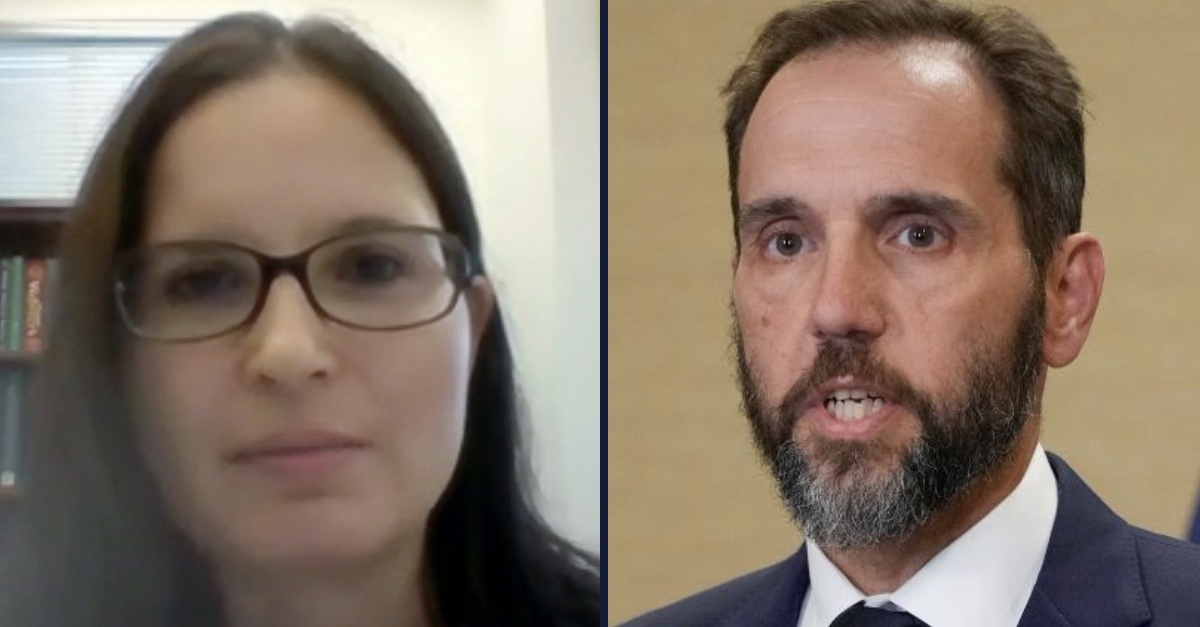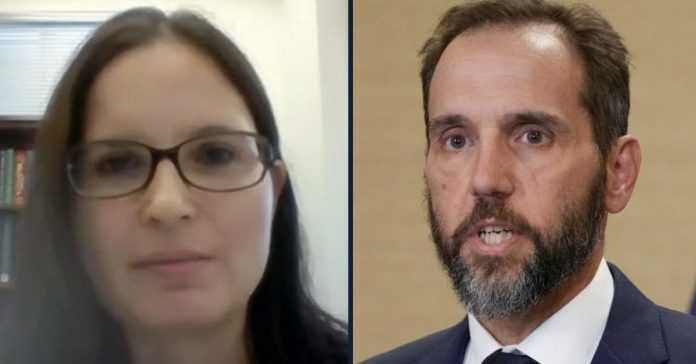
Judge Aileen Cannon (left) during a Senate Judiciary Committee oversight nomination hearing on July 29, 2020 (U.S. Senate via AP), Special counsel Jack Smith (right) speaks about an indictment of former President Donald Trump, Aug. 1, 2023, at a Department of Justice office in Washington. (AP Photo/Jacquelyn Martin)
Donald Trump’s defense lawyers got themselves more time to respond on key pretrial issues after the judge in the Mar-a-Lago case disregarded the special counsel’s complaint that the request was “unreasonable.”
U.S. District Judge Aileen Cannon, a Trump appointee and noted stickler for local rules like word count, evidently did not buy special counsel Jack Smith’s argument that the Trump team request for an extra 10 days was “unreasonable” under the local rules.
Early on Monday, the Trump defense sought more time respond to special counsel Smith’s pretrial motions dealing with discovery and the “scope of the prosecution team” ahead of a Thursday, March 14, deadline and scheduled hearing. In doing so, the defense asserted travel burdens and a need to prepare for Trump’s New York criminal trial (set to begin on March 25), among other factors, made an extension necessary — for pending motions other than the ones relating to defense Presidential Records Act and Espionage Act “unconstitutional vagueness” challenges.
As Law&Crime noted, the defense cited the New York trial date as one reason for an extension while simultaneously moving to adjourn that trial until after the U.S. Supreme Court rules in Trump’s “presidential immunity” case, a case that won’t even be argued until a month-plus from now.
In his opposition filing, Smith seemed to subtly bristle that there was no mention of the motion to adjourn in the Mar-a-Lago extension request document, but that did not impact how Cannon would rule. The special counsel, pointing out that the hush-money trial date “has been in place since 2022,” added in a footnote alerting Cannon that “Trump has also sought to adjourn the New York trial.”
“An extension of time such that they receive more than twice the time allotted by the Local Rule is unreasonable. The briefing schedule has been in place for months. Only now, on the eve of the reply deadline, does the defense complain that it needs more time—mostly based on circumstances about which they have been aware throughout the pendency of their motions: the trial date in New York has been in place since 2022; the evidence Nauta and De Oliveira will inspect tomorrow has been available to them since the Government first provided them discovery; and Nauta fails to explain how any questions about grand jury practice in the District of Columbia could affect his reply briefing and why he has waited until now to seek this information,” Smith argued. “And the fact that the defense must travel to Florida for a hearing on Thursday is not unique to those teams and poses no cause for such delay. The Court should deny the defendants’ motion.”
The judge did not deny the defendants’ motion, however.
“With the exception of replies in support of 325 (Espionage Act ‘unconstitutional vagueness’) and 327 (Presidential Records Act), Defendants shall file replies to their pretrial Motions on or before March 24, 2024,” the judge ruled later Monday.
Have a tip we should know? [email protected]

